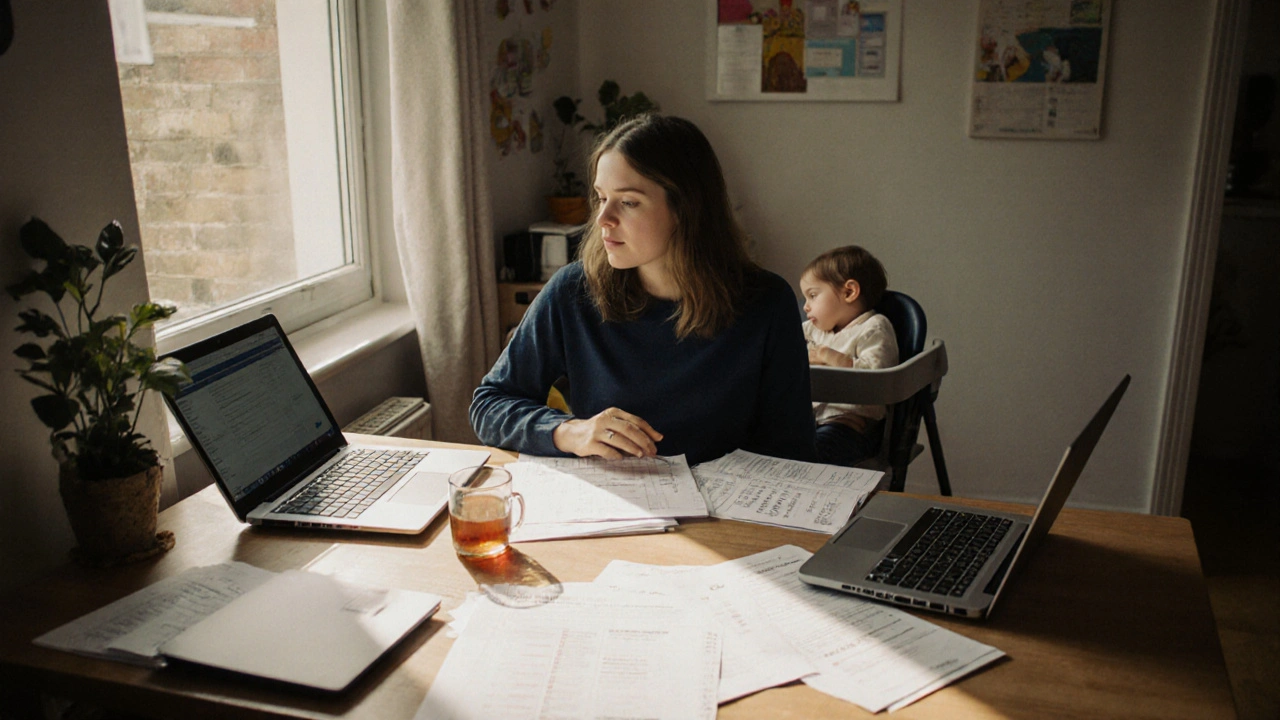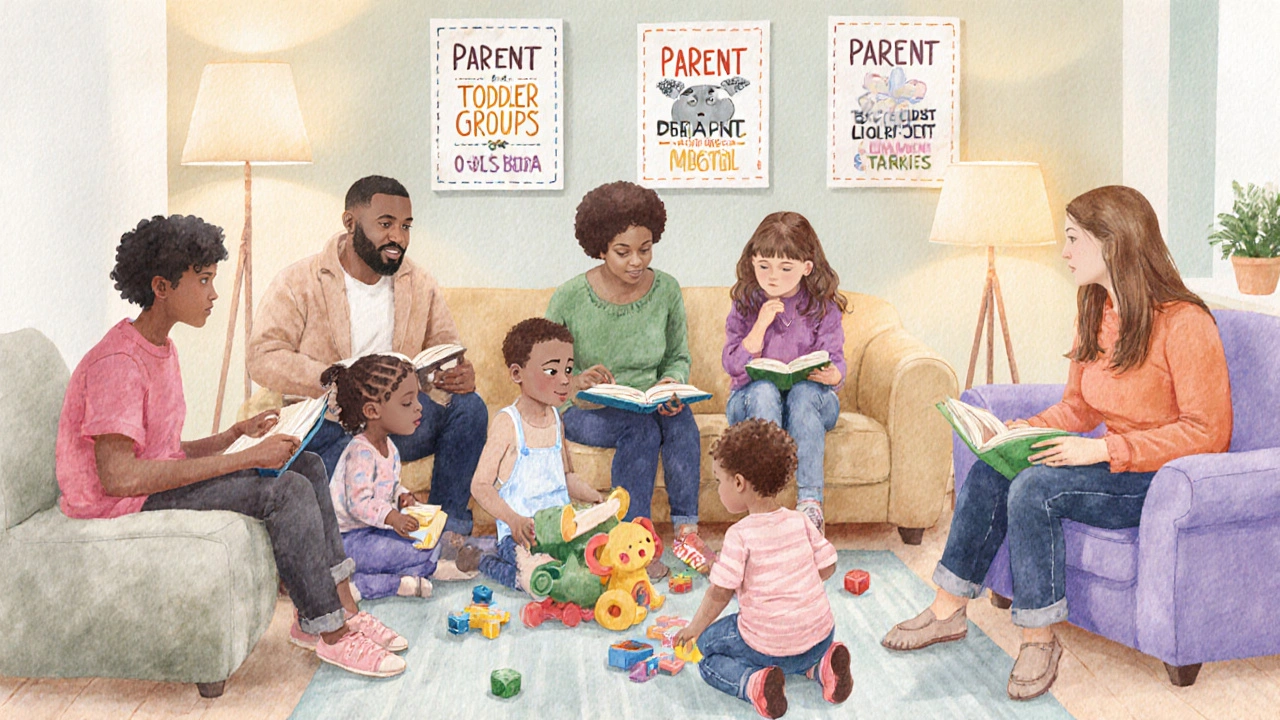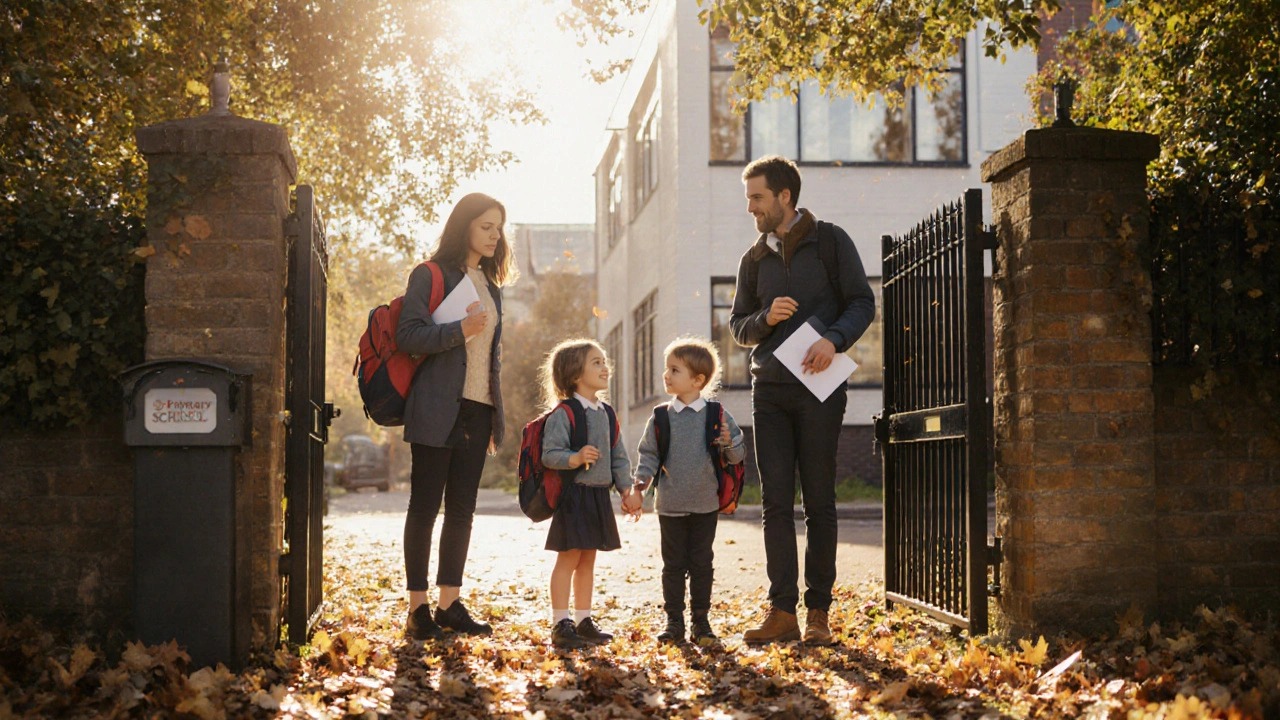Moving to London with kids isn’t just about packing boxes and finding a new apartment. It’s about rebuilding your family’s daily life around schools, doctors, and childcare-all before you even unpack the toys. If you’re coming from abroad, the system can feel overwhelming. But it’s not as complicated as it seems if you know where to start. Here’s how real families do it, step by step, with no fluff.
Step 1: Get Your Visa Right Before You Arrive
You can’t register your kids for school or a GP if you don’t have legal status. If you’re moving for work, your main visa (like Skilled Worker or Global Talent) usually covers your dependents. Make sure your children are listed as dependents on your application. If you’re self-employed or retired, check if you qualify for a Family Visa. The Home Office website says dependents must prove they’ll be supported without public funds. Keep bank statements, payslips, and your visa approval letter handy. Without this, schools and doctors will turn you away.Step 2: Choose a School-Start Early, Even If You’re Still Abroad
London’s school system is divided into state-funded (free), academies, and private. Most expats start with state schools because they’re high quality and free. But spaces are tight, especially in areas like Islington, Hackney, or Richmond. You apply through your local council’s website-not the school itself. For example, if you’re moving to Ealing, go to ealing.gov.uk/schools. You’ll need proof of address (a rental contract or utility bill), your child’s birth certificate, passport, and visa. Applications open in November for the following September. If you’re arriving mid-year, you can still apply, but options shrink fast. Wait times vary. In 2024, over 40% of families in Southwark got their first-choice school. In Westminster, it was closer to 25%. Don’t assume you’ll get your top pick. Have a backup list. Use Compare School Performance (now part of the Department for Education site) to check Ofsted ratings, pupil-to-teacher ratios, and exam results. Look for schools with strong EAL (English as an Additional Language) support-many have dedicated staff to help kids adjust.Step 3: Find Affordable Childcare-It’s Expensive, But There Are Options
Childcare in London costs more than rent in many cities. A full-time nursery spot averages £1,500 a month. But you don’t have to pay it all. If you’re working, you might qualify for the 30-hour free childcare offer. This applies to 3- and 4-year-olds if both parents earn at least £120 a week (but less than £100,000 each). You apply through the government’s childcare service portal. Approval takes 2-3 weeks. Once you get it, you’ll get a code to give your nursery. For younger kids, some nurseries offer government-funded 15-hour slots for 2-year-olds if your family gets certain benefits. Others have sliding scales based on income. Ask about discounts for siblings or early payment. Community centers and faith groups sometimes run low-cost playgroups-search for “parent and toddler groups near me” on Facebook or Meetup. They’re not daycare, but they help kids socialize and give you a support network.
Step 4: Register with a GP-It’s Free, But You Can’t Skip It
Your kids need a GP. Without one, you can’t get prescriptions, vaccinations, or emergency care without paying out of pocket. GP registration is free, but you can’t just walk in. You need to be living in the practice’s catchment area. Start by searching the NHS website for “find a GP near me.” Enter your postcode. You’ll see a list of practices. Click on each one to check if they’re accepting new patients. Many are full, especially in central London. If they’re closed, try nearby areas-sometimes practices in neighboring boroughs will take you if you’re close enough. When you find one, call or go in person. Bring your child’s passport, visa, proof of address, and any medical records. If you’re coming from outside the EU, bring vaccination records. The UK has a standard immunization schedule-MMR, DTaP, Hib, etc. If your child missed shots, the GP will catch them up for free. Don’t wait until they’re sick. Registering early means you’ll get reminders for checkups and vaccines.Step 5: Understand the NHS and How It Works for Families
The NHS covers most child healthcare for free. But it’s not like private insurance. You don’t pay per visit, but you wait. Appointments can take days or weeks. For non-urgent issues, use the NHS 111 online service or app. It’s available 24/7 and can direct you to a pharmacist, urgent care center, or GP. Emergency care? Go to A&E only for serious injuries, breathing trouble, high fever in babies under 3 months, or seizures. Otherwise, walk-in centers (called Urgent Treatment Centers) are faster and less crowded. Most boroughs have at least one. Check your local council’s website for locations. Dentists are trickier. NHS dental care is available, but many practices don’t take new NHS patients. You might need to join a waiting list. Ask your GP for a list of nearby NHS dentists. Private options cost £50-£100 per checkup, but some offer payment plans.Step 6: Set Up a Routine-School, Sleep, and Stability Matter Most
Kids thrive on predictability. After the chaos of moving, structure helps them feel safe. Create a simple weekly chart: school drop-off, after-school club, GP appointment, weekend park time. Stick to it. If your child is struggling with language, ask the school for a language buddy-a peer who speaks their native tongue. Many schools pair new arrivals with older students. It’s not tutoring, but it builds confidence. Don’t underestimate the power of small routines. A bedtime story in their native language. A familiar snack from home. A walk to the local shop every Friday. These things anchor them.
Step 7: Connect With Other Expat Families
You’re not alone. London has over 300,000 children of expats. Facebook groups like “Expats in London Families” or “International Parents in [Borough Name]” are full of people who’ve been there. Ask about schools that were easy to get into. Ask where the best free playgrounds are. Ask which GP practices actually answer the phone. Local libraries often host free family events-story time, toddler music, craft sessions. They’re quiet, warm, and full of other parents. Go. Talk. You’ll find your tribe.What Not to Do
Don’t wait until you land to look for schools. Spaces fill fast. Don’t assume your child’s home country vaccinations will be accepted-NHS staff will check and may require boosters. Don’t skip GP registration because you think “they’ll treat us in an emergency.” Emergency care doesn’t cover ongoing needs like asthma inhalers or growth checks. Don’t isolate yourself. Moving is hard for kids-and for you. Ask for help.Final Tip: Keep Copies of Everything
Save digital and physical copies of:- Your visa and your children’s dependents’ documents
- Proof of address (rental contract, utility bill)
- Birth certificates and passports
- Vaccination records
- GP registration confirmation
- School offer letter
- Childcare funding code
Moving to London with kids isn’t about perfection. It’s about progress. One step at a time. Register the GP. Enroll in school. Find a nursery. Build a routine. You’ll get there.
Can I register my child for a London school without a permanent address?
Yes, but it’s harder. If you’re renting temporarily, you can use a short-term tenancy agreement or a letter from your landlord. Some councils accept utility bills in your name, even if you just moved in. But priority goes to families with long-term housing. If you’re staying with friends or family, bring a letter from them confirming your stay. The sooner you apply, the better your chances.
Is preschool free in London?
For 3- and 4-year-olds, yes-up to 30 hours a week if both parents work and meet income rules. For 2-year-olds, 15 hours are free if your family qualifies for certain benefits. Otherwise, you pay. Some nurseries offer subsidized rates or discounts for siblings. Check your local council’s childcare page for details.
Do I need to pay for my child’s NHS care?
No. All children under 18 who are legally residing in the UK get free NHS care, including GP visits, prescriptions, hospital treatment, and vaccinations. You don’t pay per visit. The only exceptions are dental care (if you go private) and some eye tests. If someone asks you to pay for a GP appointment, they’re wrong-report it to NHS England.
What if my child has special educational needs?
London schools are required to support children with special needs. When you apply for school, mention any diagnosis or support plan from your home country. The school will assess your child and may create an EHCP (Education, Health and Care Plan). This legally guarantees support like teaching assistants, speech therapy, or adapted lessons. Don’t wait-start the conversation early.
Can I use my home country’s health insurance instead of registering with a GP?
No. Private insurance won’t work for routine care like vaccinations, growth checks, or school health forms. The NHS is the only system that connects to schools, pharmacies, and child services. Even if you have global insurance, you still need to register with a GP. Otherwise, you’ll miss critical health alerts and won’t get free prescriptions.
